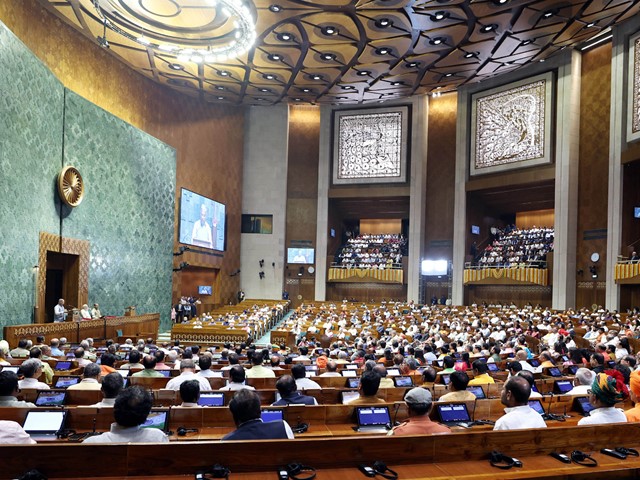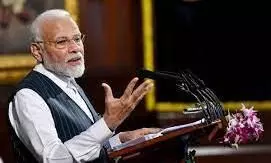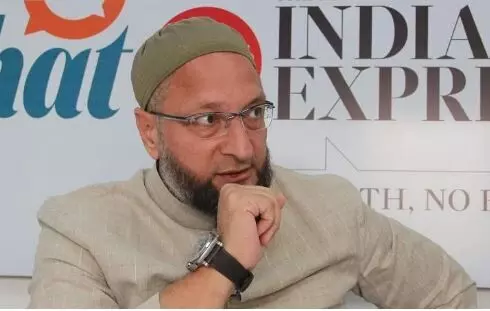
Women's quota in legislatures
text_fieldsA constitutional amendment bill to reserve a third of seats in parliament and in state legislatures for women was introduced in Lok Sabha at its maiden session in the new parliament building inaugurated on Tuesday. It is significant that this took place in the highest legislative body of India after the country has crossed 75 years since independence. Although prime minister Narendra Modi has claimed that he was specially chosen by God to bring in women's reservation, as a matter of fact, women's reservation bill was tabled in parliament in 1996, 1998 and 2008. And in 2010, with the support of the Congress, BJP and Left parties, the Rajya Sabha had passed such a bill. But even after the lapse of 13 years thence, Lok Sabha did not pass that bill. The stated reason for this is that parties like SP, RJD and BSP insisted on inserting a provision for Other Backward Classes (OBC) reservation within the women's quota. In the bill newly moved by minister Arjun Ram Meghwal either, there is no mention of reservation for Other Backward Castes. Still, given that most of the major parties have promised support for the bill in advance, this constitution amendment bill, brought with an eye on the 2024 election, is expected to be passed by parliament, if not unanimously, at least with a wide majority – even if it will not come into effect for the Lok Sabha election next year.
Women's representation in legislatures at a global level is 25.8 per cent, but India stands 148th in that ranking with 14.4 per cent representation. In the 543-member parliament, only 78 are women, which certainly presents a picture of correction remaining long over due. No further evidence is needed to prove the injustice shown to the female gender that forms half of the population. Although it is true that the much-talked about male dominance is the reason for this, the socio-political and cultural realities of the country play a major role in this. Although we would be loquacious to assert aphorisms like woman is mother, Bharat is our mother country and paradise lies beneath the feet of mother, overall the society has not been able to accord the due respect or even humanitarian consideration to women in their roles of mother, wife, daughter or sister. It would be realistic to admit that despite passage of three quarters of a century after emancipation from colonial rule, the nation has not been able to provide decent and safe living conditions for women, to make women's education widely accessible or to ensure women's empowerment in different spheres of life. It is true that in the areas of education, and culture, arts and literature, and to some extent in politics too, positive and hopeful changes have happened; especially in education where girls are seen to outshine boys in several disciplines - which is a matter of pride. The false notions that woman is weak and destined to live with the prop of men has come to be erased gradually. In this situation, there is room for optimism that the increased representation for women in legislatures achieved through the amendment can accelerate this transformation.
But it would be absurd if women can ascend the ladder of power politics overcoming adverse factors only through waiting for the mercy of the male-centric political parties. And the new women legislators have to acquire qualities modelled on the iron hand of Indira Gandhi, the confidence of Captain Lakshmi, the grit and determination of brave women like Medha Patkar, Arundhati Roy and Teesta Setelvad, the daring of Brinda Karat, Annie Raja and Mamata Banerjeee. But the challenge of current times is that the number of such personages is scanty. Even as the experience of women's reservation in local self-government bodies of Kerala is encouraging, the dismally low number of women in Kerala's legislative assembly is an issue that cannot be ignored. Although mandatory quota can be a solution to a certain extent, it is the fighting mettle in socio-political arena that would act as justification for women's quota. Equally important is it that the women disprove the stigma of being back-seat driven by men by taking it upon themselves to purge our national life ridden by corruption and abuse of power. Only then will women's quota in legislatures become meaningful.


























